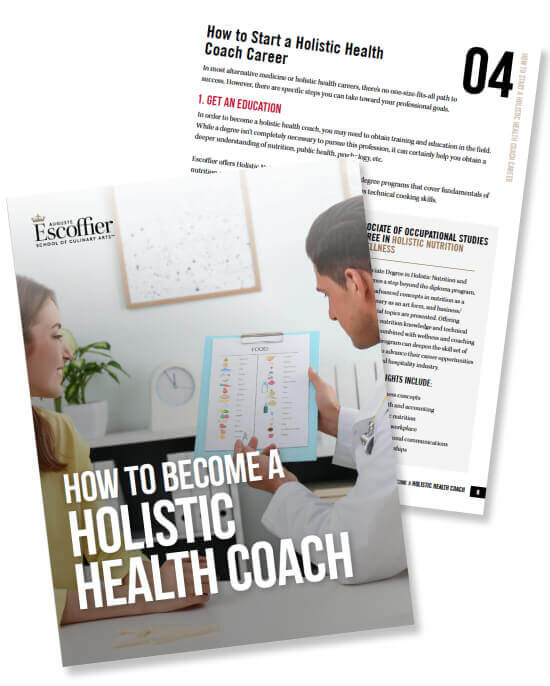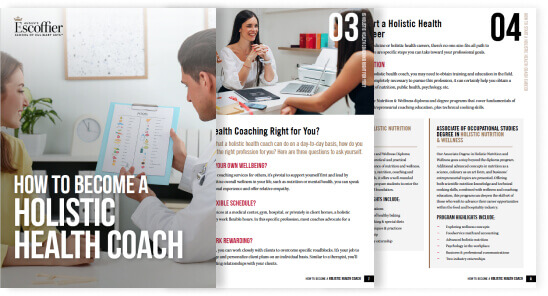If you’re interested in a rewarding career that allows you to empower people to reach better physical, mental, and emotional well-being, you might consider looking into health coaching.
This career could have you writing a nutritious meal plan for a client who wants to go plant-based, checking in on fitness goals with someone who’s trying to lose weight, and researching herbal supplements for adrenal support…all in the course of a day!
Plus the health coaching industry is rapidly growing and expected to hit over $25 billion in revenue by 2030, making it an ideal time to start exploring this field. If your curiosity is piqued, let’s discover how to become a health coach!
What Does a Health Coach Do?
A health coach’s job is to provide clients with the tools, strategies, and encouragement to reach their individual health goals with a compassionate approach. Whether a client is looking to lose weight, decrease stress, or better manage a chronic condition, a health coach can help provide tangible action steps to help them achieve this.
Unlike a nutrition coach, a health coach doesn’t necessarily zero in on the culinary aspect of a client’s journey to optimize health. Instead, food is one factor in the bigger picture. Health coaches may also take into account fitness and movement, stress management, sleep patterning, curbing addictions or unhealthy coping mechanisms, and much more. It’s important to note that they do not treat specific medical conditions or make diagnoses—practices that would require additional education and credentialing.
There is no standard certification, license, or educational requirement to become a health coach, although certifying bodies do exist for those looking to add legitimacy to their business. For example, to become a Certified Health Coach, you must pass the exam facilitated by the National Board for Health & Wellness Coaching.
Is Health Coaching Right For You?
Before we dive into the steps to becoming a health coach, you might be wondering—is this the right career path for you?
According to Holistic Health Coach Julie Peláez, she realized health coaching was her “calling” after turning inwards and tapping into her desire to nix unhealthy habits like smoking. Then she fell into yoga teacher training. “From that point, I was on a different path,” said Julie. “I had caught up to that vision I had of myself. I was living what I was speaking. I was living my word.”*
Julie then found herself on the holistic coaching path shortly after teaching yoga, but she elaborates that she’s always been infatuated with the world of health. “I aspired to live the healthy lifestyle. I was really sort of a hippie at heart, and sort of always have been. More of a natural. Telling my mom I didn’t want to take the medication and that sort of stuff.”* Julie shares.
Like Julie, most individuals who aspire to become a health coach are naturally curious about the world of health—they’re passionate about it. So if you exude that same affinity for all things health and wellness, this type of coaching could be an ideal occupation for you.

Health coaching can be a fulfilling career path for those interested in overall well-being.
How to Become a Health Coach
Since there are a plethora of career options for health coaches, there is no singular path to this profession. However, there are certain steps you can take to pursue a successful career in this field!
Obtain an Education
It’s important to note that there isn’t a set degree requirement to become a health coach. But securing an education can help you speak from a more informed perspective and could bolster your credibility and reputation.
Plus, exploring wellness concepts like mindfulness and meditation, optimal sleep and stress management, herbalism, and nutrient-rich diets can also help better equip you to make impactful recommendations to your future clients. Escoffier’s Exploring Wellness Concepts courses can teach these theories and many more.
“A distinguishment of the Holistic Nutrition and Wellness programs is the intersection of multiple disciplines: we teach classical culinary techniques alongside foundational nutrition information and integrative approaches to wellness. We’re uniquely positioned to help students navigate cooking for health and how other forces influence a person’s lifelong well-being.”*
Stephanie Michalak White, Escoffier Lead Chef Instructor
Additionally, since health coaching is a solo profession—even if you’re working within a larger organization—honing skills in communication, entrepreneurship, and psychology can go a long way in the success of your coaching.

Health coaches can help guide their clients to making more nutritionally beneficial decisions with food.
With this kind of foundational education, you can also set yourself up for managing the business side of health coaching (bookkeeping, sound decision-making, etc.) as well as the interpersonal side (encouraging distraught clients, shifting stubborn thought patterns, etc.)
Skills You May Need to Become a Health Coach
- Broad knowledge of the latest healthcare trends
- Solid understanding of coaching techniques
- Expansive training in nutrition and fitness
- Active listening
- Conflict resolution
- Organization
Get Experience in the Field
Of course, the only way you can become a trusted health coach is to actually practice health coaching. By working directly with clients, you can gain the valuable experience needed to excel on your path as you continue to hone your skills.
“Food is the on-ramp. Food is the gateway. Clients come to see me because they want to lose weight, because they’re fatigued, or they’re dealing with some chronic illness, or their hormones are out of balance. Then we end up having this deep philosophical, spiritual conversation. Body, mind, and spirit. Food is the entry point, we come and we talk about the food that you put in your body. Food is energy. Food is information. It’s not just calories in/calories out.”*
Julie Peláez, Board-Certified Holistic Health Coach and Co-founder of The Conscious Cleanse
One great way of doing this is through a hands-on industry externship. At Escoffier, degree and diploma students must complete either one or two externships as a requirement for graduation.
Externships can allow you to apply what you’ve learned in the classroom to real-world clients and situations. They also may provide valuable networking opportunities with professionals in the field.
Health Coaching Specialties
Health coaching can take a variety of forms. Depending on the types of populations you wish to work with, you could pursue health coaching in the following niches.
Comprehensive or Holistic Health Coaching
Working with clients to help achieve their health goals sounds broad, but this allows for comprehensive coaching practices. If you’re interested in supporting everyday people to reach outcomes like lowering blood pressure, stopping smoking, or getting better quality sleep, a more general health coaching practice may be for you.
This niche could also include holistic nutrition, as you might help your clients incorporate healthier eating habits into their overall roadmap to better health. Grasping some concepts in psychology can help you better coach people to make the mindset shifts they may need for the breakthrough they’re looking to achieve.
Athletic or Fitness-Related Health Coaching
These health coaches might work with average people looking to lose weight—for personal or health-related reasons. They may also work with professional athletes who are looking to improve their performance.
Fitness-related health coaching can require deep knowledge of nutrition and culinary concepts, as well as exercise science. It may require knowledge of special diets, substitutions for allergies, and anti-inflammatory aids.
Like holistic health coaching, it may require a thorough understanding of human behavior and strategies for shifting problematic mindsets.
Corporate Health Coaching
Many companies seek to promote health and well-being in their workforces, whether to increase employee satisfaction and productivity or to meet benchmarks for health insurance incentives. Often, health coaches are brought into corporations to provide programs for groups of employees.
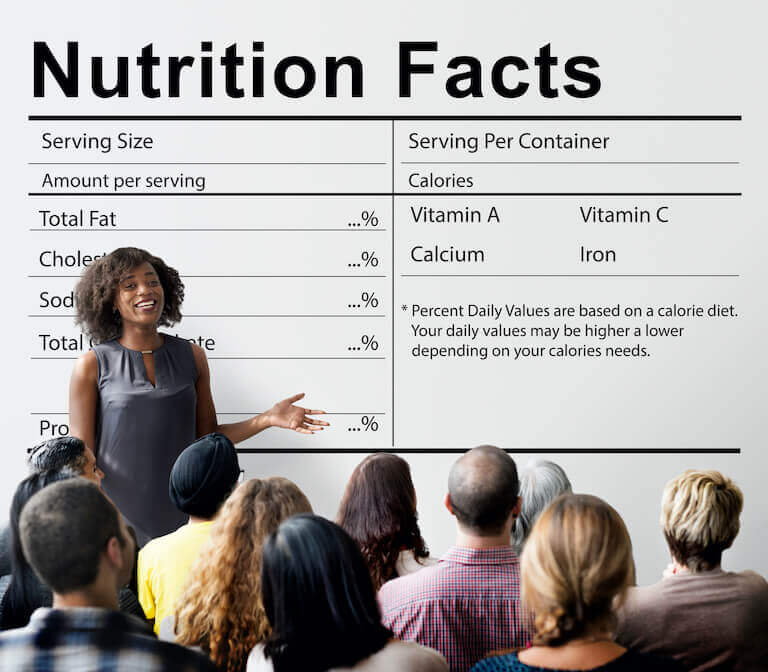
Knowing the ins and outs of a nutrition label is vital for health coaches!
This could look like making nutrition presentations to staff teams at lunchtime, holding regular “office hours” allowing individuals to come in for health consultations, or even designing and delivering fitness programs. Some corporate health coaches work with one company solely, while others may serve in a consulting role for several companies at once.
Special Population Health Coaching
According to the National Council on Aging, about 95% percent of Americans 65 and older, have at least one chronic condition, and nearly 80% of have two or more. Needless to say, if you’re seeking to coach an older demographic, you might consider pursuing geriatric health coaching in a hospital, nursing home, or retirement community.
If you’re passionate about encouraging healthy habits in kids, you could look into health coaching in schools, camps, or after-school programs.
Empowering women during their pregnancies might be your calling, and in this case, you could work one-on-one with clients in prenatal or postnatal wellness. These opportunities to support women’s health might exist via a partnership with a medical provider or practice or even a gym or yoga studio.
Take the First Step to Become a Health Coach
As we’ve discussed, there are no specific or industry-regulated degree requirements for becoming a health coach. That said, a formal education in the field of wellness can lay the groundwork for a career in this field, as well as fostering your future clients’ trust and confidence in your services.
Escoffier offers a robust holistic nutrition program with a foundation in the culinary arts. By earning a degree or diploma in Holistic Nutrition and Wellness, you can help set yourself on the path to a fulfilling and potentially lucrative career as a health coach.
Did you find this article helpful? Try these next:
- What Is Holistic Health
- What Does a Holistic Health Practitioner Do?
- How to Start a Career in Holistic Health
This article was originally published on March 29, 2022, and has since been updated.
*Information may not reflect every student’s experience. Results and outcomes may be based on several factors, such as geographical region or previous experience.

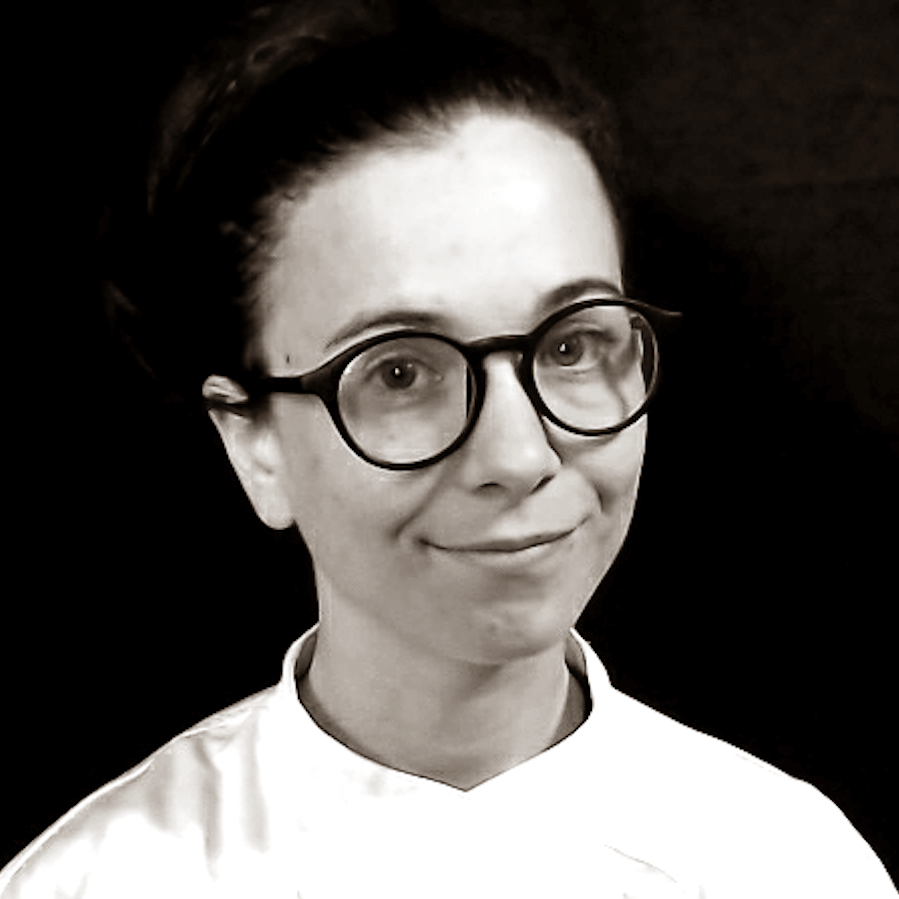 “A distinguishment of the Holistic Nutrition and Wellness programs is the intersection of multiple disciplines: we teach classical culinary techniques alongside foundational nutrition information and integrative approaches to wellness. We’re uniquely positioned to help students navigate cooking for health and how other forces influence a person’s lifelong well-being.”*
“A distinguishment of the Holistic Nutrition and Wellness programs is the intersection of multiple disciplines: we teach classical culinary techniques alongside foundational nutrition information and integrative approaches to wellness. We’re uniquely positioned to help students navigate cooking for health and how other forces influence a person’s lifelong well-being.”*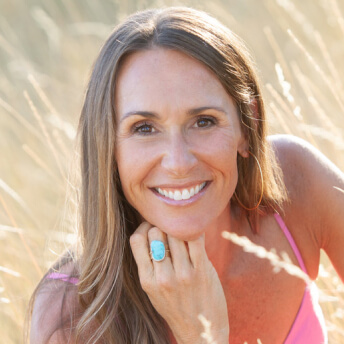 “Food is the on-ramp. Food is the gateway. Clients come to see me because they want to lose weight, because they’re fatigued, or they’re dealing with some chronic illness, or their hormones are out of balance. Then we end up having this deep philosophical, spiritual conversation. Body, mind, and spirit. Food is the entry point, we come and we talk about the food that you put in your body. Food is energy. Food is information. It’s not just calories in/calories out.”*
“Food is the on-ramp. Food is the gateway. Clients come to see me because they want to lose weight, because they’re fatigued, or they’re dealing with some chronic illness, or their hormones are out of balance. Then we end up having this deep philosophical, spiritual conversation. Body, mind, and spirit. Food is the entry point, we come and we talk about the food that you put in your body. Food is energy. Food is information. It’s not just calories in/calories out.”*
